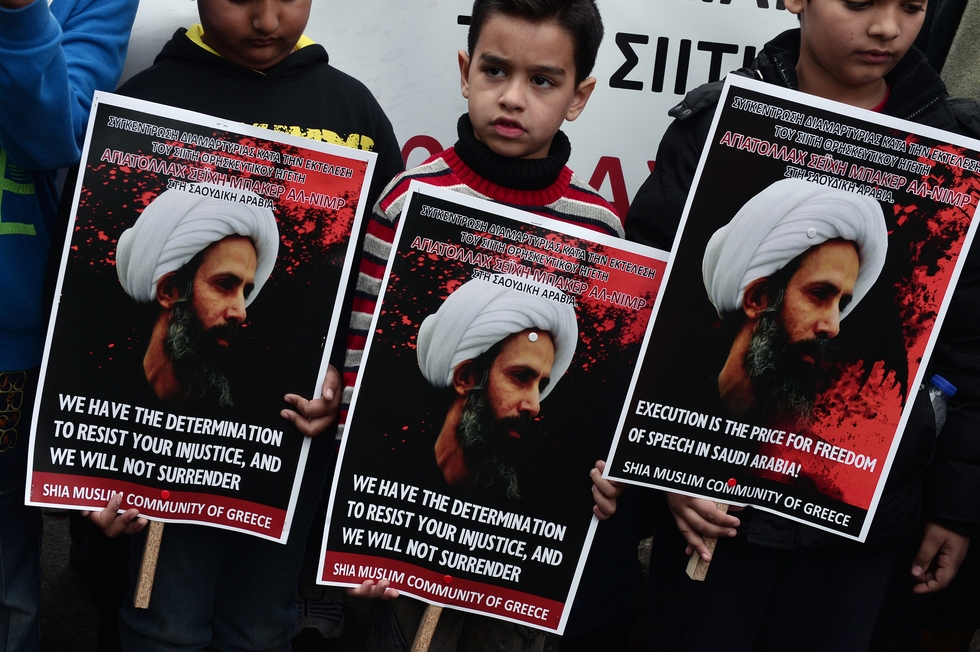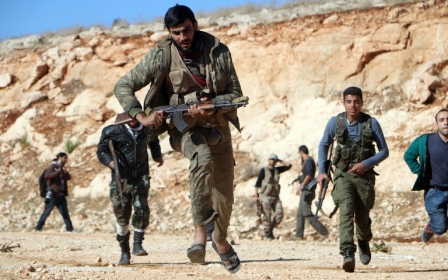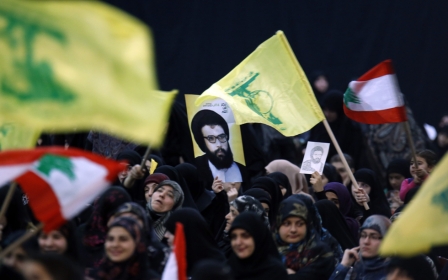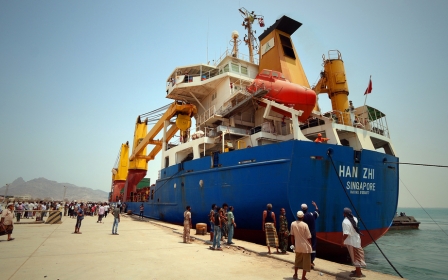Saudi Arabia puts on trial 32 suspected of spying for Iran

Thirty Saudis from a Shia-majority region of the kingdom have gone on trial for allegedly spying for Iran, local media reported on Monday.
An Iranian and an Afghan are also accused, the reports said.
Saudi media reported that the 32 defendants were detained in 2013. They include several well-known Saudis from the Eastern Province, including an elderly university professor, a banker and two clerics, according to Reuters.
The spying allegations come after Saudi Arabia cut diplomatic ties with Tehran in January during a crisis between the regional rivals.
The decision came after demonstrators set fire to the Saudi embassy in Tehran and attempted to storm the consulate in Iran's second city of Mashhad to protest the Saudi execution of Shia cleric Nimr al-Nimr, a native of the Qatif area.
The trials are taking place before a special criminal court in Riyadh, the Saudi Gazette and Al-Arabiya news channel's website reported.
The 32 suspects allegedly committed high treason against the Sunni-dominated kingdom by collaborating with Iranian intelligence.
They divulged defence secrets, sought to commit sabotage, tried to recruit moles in government departments to send coded information, and supported "riots" in Qatif, the reports said.
They claimed that some suspects met Iran's Supreme Leader Ayatollah Ali Khamenei.
The executed cleric Sheikh al-Nimr was a driving force behind protests that began in 2011 among the kingdom's minority Shia community.
Those protests later developed into a call for equality in the kingdom where Shia Saudis complain of marginalisation.
Saudi Arabia alleges that Iran has a 37-year record of spreading "sedition, unrest and chaos" in the region.
During an interview last week with AFP, Foreign Minister Adel al-Jubeir accused "elements of the Iranian regime" of complicity in the January attacks on Saudi diplomatic facilities.
He alleged Iran had "spy cells... that are conducting sabotage operations or terrorism".
Middle East Eye propose une couverture et une analyse indépendantes et incomparables du Moyen-Orient, de l’Afrique du Nord et d’autres régions du monde. Pour en savoir plus sur la reprise de ce contenu et les frais qui s’appliquent, veuillez remplir ce formulaire [en anglais]. Pour en savoir plus sur MEE, cliquez ici [en anglais].




